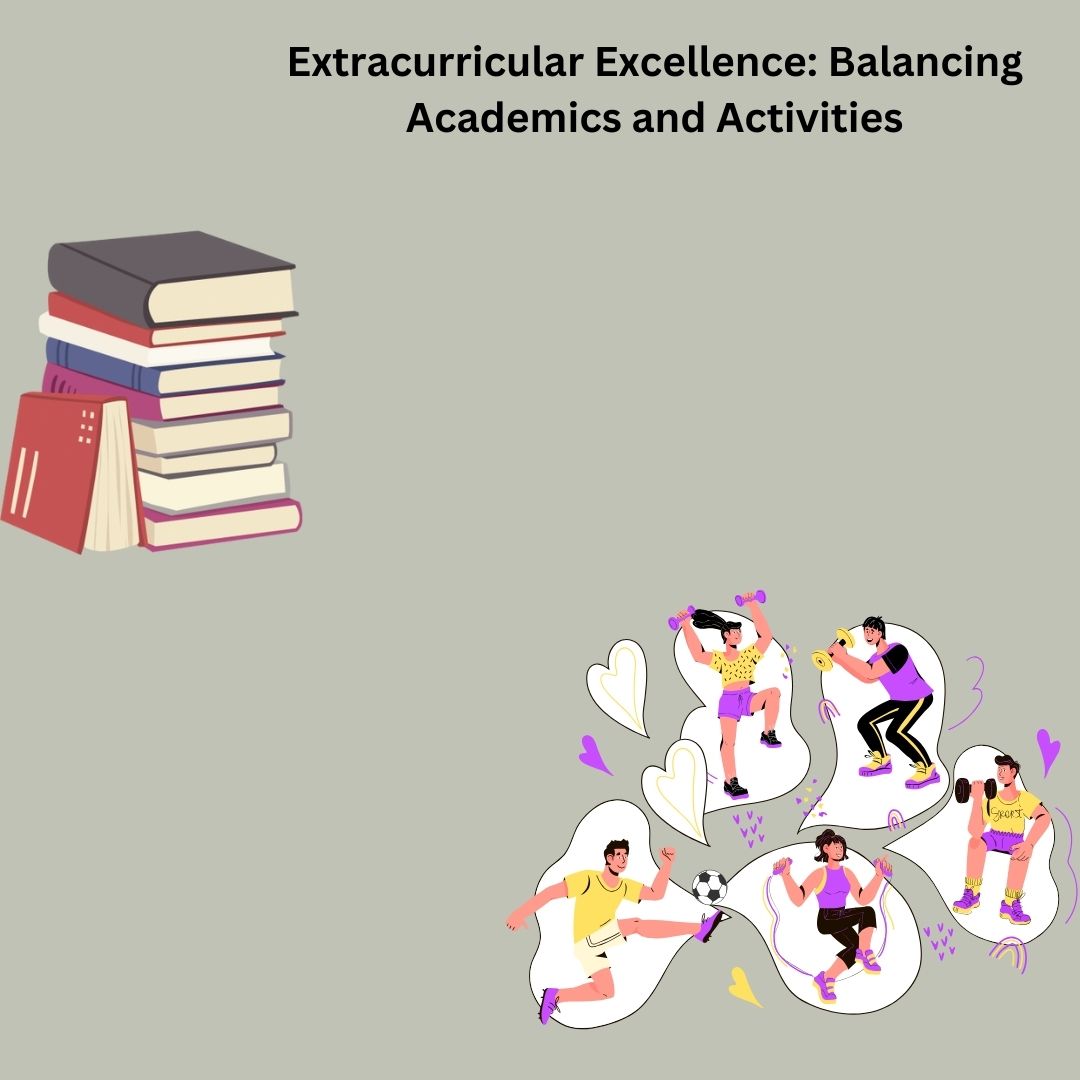Balancing academics and extracurricular activities is a challenge many students face. Extracurricular activities such as sports, clubs, and arts offer valuable experiences but require effective management to ensure they complement rather than hinder academic performance. In this blog, we’ll explore the concept of extracurricular excellence and provide strategies for achieving a balance between academics and activities that promotes overall success.
The Benefits of Extracurricular Activities
Enhancing Skill Development
Extracurricular activities provide opportunities for students to develop skills beyond the classroom. Whether it’s leadership through student government, teamwork through sports, or creativity through the arts, these activities help students build competencies that enhance their academic and personal growth. Engaging in diverse activities allows students to discover their passions and strengths, contributing to a well-rounded education.
Boosting College Applications
Involvement in extracurricular activities can significantly boost college applications. Colleges and universities look for well-rounded applicants who demonstrate leadership, commitment, and diverse interests. By participating in meaningful extracurriculars, students can showcase their skills and achievements, making their applications stand out. For more tips on enhancing college applications, check out Edutopia.
Strategies for Balancing Academics and Extracurriculars
Prioritize and Set Goals
To achieve extracurricular excellence, students should prioritize their activities and set clear goals. Start by identifying your most important academic and extracurricular commitments. Create a list of goals for both areas and determine how they align with your long-term objectives. Setting specific, measurable, achievable, relevant, and time-bound (SMART) goals can help you stay focused and organized.
Balancing multiple activities requires clear priorities. For example, if you have a major academic project due, it’s important to adjust your extracurricular schedule accordingly. Effective goal-setting ensures that you make progress in both academics and extracurriculars without feeling overwhelmed.
Manage Your Time Effectively
Effective time management is crucial for balancing academics and extracurriculars. Create a detailed schedule that includes time blocks for studying, attending classes, participating in activities, and relaxing. Utilize tools like planners, digital calendars, or time management apps to stay organized.
Time management strategies, such as the Pomodoro Technique or time blocking, can help you maximize productivity and maintain focus. Ensure you allocate time for both your academic responsibilities and extracurricular pursuits. For more time management tips, refer to our [Effective Time Management Tips for Students](link to your blog on effective time management tips) blog.
Maintain Open Communication
Open communication with teachers, coaches, and club advisors is essential for balancing commitments. Inform them about your extracurricular activities and any potential conflicts with academic responsibilities. By maintaining transparency, you can work together to find solutions and manage your workload effectively.
If you anticipate a scheduling conflict or need flexibility, discuss it with your teachers or advisors in advance. They may be able to provide accommodations or offer support to help you manage your responsibilities.
Overcoming Common Challenges
Avoiding Burnout
Juggling academics and extracurriculars can lead to burnout if not managed properly. It’s important to recognize the signs of stress and take proactive steps to prevent burnout. Prioritize self-care by getting enough sleep, eating healthy meals, and engaging in activities that help you relax and recharge.
Set realistic expectations for yourself and avoid overcommitting. If you feel overwhelmed, consider reducing your involvement in certain activities or seeking support from family and friends. Maintaining a balanced approach ensures that you stay motivated and perform well in both academics and extracurriculars.
Handling Conflicts and Scheduling Issues
Conflicts and scheduling issues are common when balancing multiple commitments. To address these challenges, plan ahead and anticipate potential conflicts. Use a calendar to track deadlines, events, and activities, and make adjustments as needed.
Develop problem-solving skills to handle unexpected conflicts. For example, if you have a major exam and an important extracurricular event on the same day, prioritize your academic responsibilities and communicate with your extracurricular leaders about rescheduling or finding an alternative solution.
Maximizing the Impact of Extracurricular Activities
Seek Leadership Opportunities
Taking on leadership roles in extracurricular activities can enhance your overall experience and provide valuable skills. Leadership positions, such as team captain or club president, allow you to develop organizational, communication, and problem-solving skills. These experiences contribute to personal growth and can positively impact your academic and professional future.
Reflect and Adjust
Regularly reflect on your involvement in extracurricular activities and academic performance. Assess what is working well and what areas may need adjustment. Be open to making changes based on your reflections, whether it’s adjusting your schedule, exploring new activities, or setting new goals.
Continuous reflection and adjustment help you stay aligned with your priorities and ensure that your involvement in extracurriculars remains beneficial to your overall success.
Conclusion
Extracurricular excellence involves successfully balancing academics and activities to achieve a well-rounded and fulfilling experience. By prioritizing and setting goals, managing time effectively, and maintaining open communication, students can thrive in both their academic and extracurricular pursuits. Overcoming challenges such as burnout and scheduling conflicts requires proactive strategies and self-care. Ultimately, finding the right balance enhances personal growth, academic success, and overall satisfaction



Leave a Reply